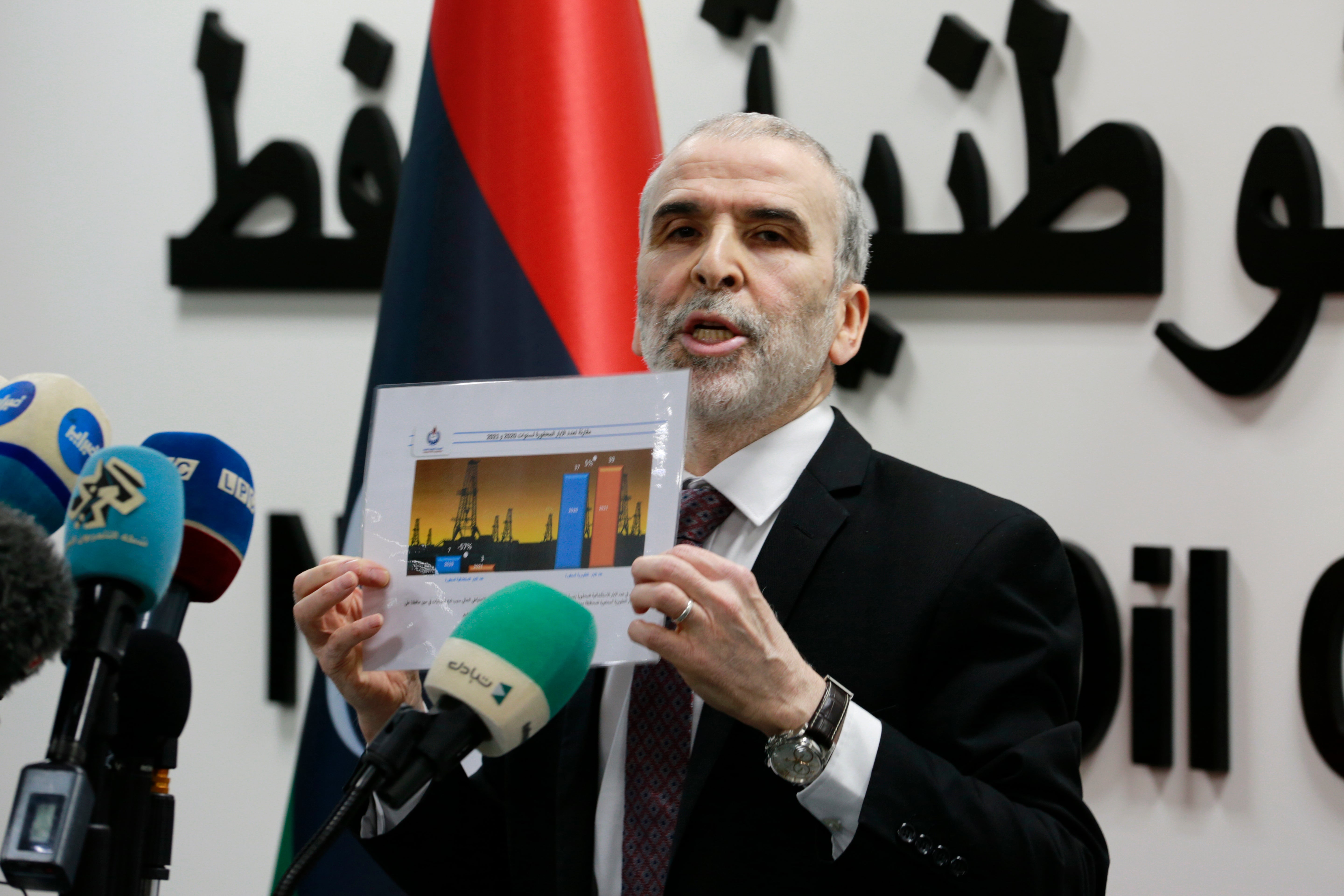US Embassy alarmed by power struggle at Libya's oil company
The U.S. Embassy in Libya is voicing concern over the struggle for control of Libya’s oil corporation after its chairman was sacked

Your support helps us to tell the story
From reproductive rights to climate change to Big Tech, The Independent is on the ground when the story is developing. Whether it's investigating the financials of Elon Musk's pro-Trump PAC or producing our latest documentary, 'The A Word', which shines a light on the American women fighting for reproductive rights, we know how important it is to parse out the facts from the messaging.
At such a critical moment in US history, we need reporters on the ground. Your donation allows us to keep sending journalists to speak to both sides of the story.
The Independent is trusted by Americans across the entire political spectrum. And unlike many other quality news outlets, we choose not to lock Americans out of our reporting and analysis with paywalls. We believe quality journalism should be available to everyone, paid for by those who can afford it.
Your support makes all the difference.The U.S. Embassy in Libya voiced concern on Thursday over the struggle for control of Libya's oil corporation after its chairman was sacked by one of Libya's two rival governments.
The embassy tweeted that U.S. officials are following the developments with “deep concern." It added that The National Oil Corporation has preserved its political independence and worked effectively under Chairman Mustafa Sanalla, in a sign of U.S. support for him.
That came a day after the Tripoli-based government of Abdul Hamid Dbeibah announced Sanallah's dismissal and the appointment of Farhat Bengdara, a former governor of Libya’s central bank as the country’s new oil chief. Dbeibah also announced the appointment of a four-member commission to oversee the handover. It came as Sanallah and his board were out of the office celebrating Eid El Adha holidays.
Sanallah has refused to leave office, arguing in a televised speech that Dbeibah’s government lacked legitimacy.
“The reported replacement of the NOC board may be contested in court but must not become the subject of armed confrontation,” said the U.S. Embassy.
Earlier on Thursday, the NOC issued a statement saying that military vehicles belonging to a Dbeibah-allied militia have been stationed inside its premises. The NOC statement said it would hold Dbeibah responsible for any attempt to disrupt their work.
In a video circulated on the social media, NOC staff appeared to rally at the entrance of the NOC building to prevent members of the Dbeibah-appointed commission from stepping in. However later on, Dbeibah's government announced that both the commission and the new oil chief had walked into the building and took over.
The North African country has been wrecked by conflict since the NATO-backed uprising-turned-civil war toppled and later killed longtime dictator Moammar Gadhafi in 2011. For many years, Libya has been divided between two administrations one in the east and another in the west, each backed by foreign governments and local militias.
The country’s prized light crude has long been a feature of Libya's civil war, with rival militias and foreign powers jostling for control of Africa's largest oil reserves.
In its statement, the U.S. embassy called on all parties to restore oil and gas production in order to address electricity shortages and for a “transparent” mechanism for the management and oversight of oil revenues.
In recent months, tribal leaders have shut down crucial oil facilities, including the country’s largest oil field in the south. The blockage was likely meant to deprive Dbeibah’s government of funds and empower his rival, Fathi Bashagha, who was appointed as prime minister by the east-based parliament in February.
The shutdown has exacerbated the country's electricity shortages and sparked protests across the country, including one that resulted in the storming of the east-based parliamentary headquarters in Tobruk.
Libya's lawmakers insist that Dbeibah's mandate expired last year after his failure to hold general elections in December as dictated by a UN-brokered roadmap.
In recent months, the UN has sponsored several rounds of talks between the country's two rival legislative bodies to agree on a constitutional mechanism to hold elections — without results.